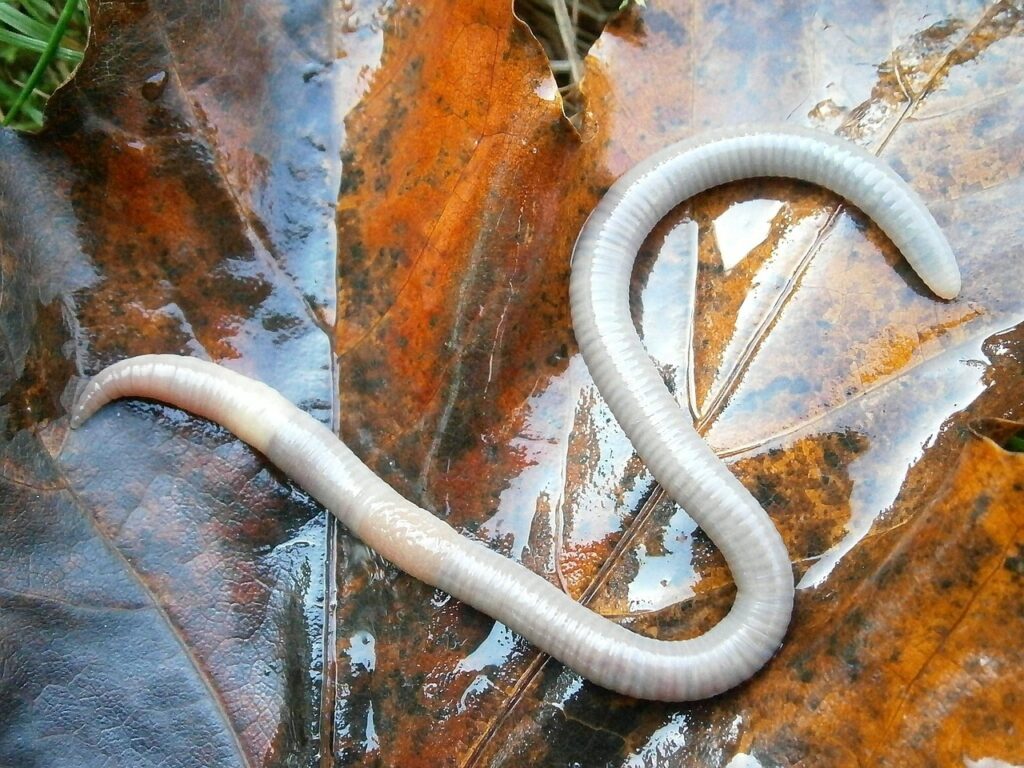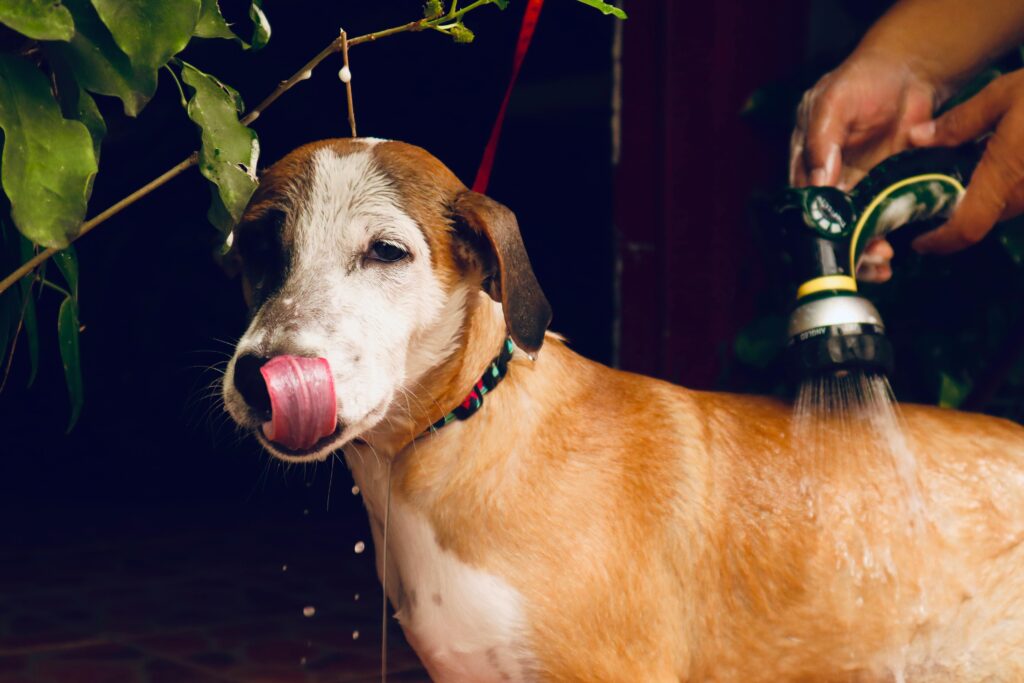As new dog lovers, we often face situations that worry us, and one of the most common issues in puppies is worms. At first, we might not even recognize the problem, but when we notice unusual behavior or symptoms, we start to get concerned. Worm infections in puppies are quite common, especially because their immune systems are still developing. The important thing is to identify the symptoms early, understand the causes, and know how to treat and prevent them. We need to know how safe our puppy with worms is.
Since we observe our puppies regularly, even small changes in their behavior can catch our attention. Sometimes the symptoms are subtle, but once we know what to look for, it becomes easier to spot the signs of a worm infestation.
Can a dog live without worms?
Yes, a dog can live without worms, and in fact, a healthy dog should be completely free of worms. Worms are parasites that can live inside a dog’s body, feeding off its nutrients and causing various health problems. Some of the most common worms that affect dogs include roundworms, tapeworms, hookworms, whipworms, and heartworms.
When a dog is free from worms, it is more likely to have a strong immune system, better digestion, a shiny coat, and overall good health. However, if a dog becomes infected with worms, it may experience symptoms like weight loss, vomiting, diarrhea, a bloated stomach, fatigue, and even more serious complications if left untreated.
A dog that lives without worms will be happier, healthier, and more energetic. That’s why it’s so important to take preventive measures and ensure that worms never become a problem for your furry friend.
Types of Worms in Puppies
Before diving into the symptoms, it’s essential to know the different types of worms that can affect puppies. Each type has its own effects on the puppy’s health:
- Roundworms: These are the most common worms found in puppies. They look like long, white spaghetti-like strands. Puppies can get roundworms from their mother’s milk or from contaminated environments.
- Hookworms: These tiny worms are dangerous because they attach to the puppy’s intestinal walls and feed on blood, leading to anemia. Puppies can get hookworms through their mother or by ingesting contaminated soil.
- Tapeworms: Tapeworms are flat, segmented worms. Puppies usually get tapeworms by swallowing infected fleas. You might notice small, rice-like segments around your puppy’s anus or in their stool.
- Whipworms: These worms are less common in young puppies but can cause severe digestive issues. They live in the large intestine and cause inflammation.
- Heartworms: Although heartworms are less common in very young puppies, they can be deadly. They are transmitted through mosquito bites and affect the heart and lungs.
Symptoms of Worms in Puppies
The symptoms of worms in puppies can vary depending on the type of worm and the severity of the infection. Some signs are very noticeable, while others are more subtle. Here are the most common symptoms:

- Pot-bellied Appearance:
One of the first things you may notice is that your puppy’s belly looks swollen or bloated, even though they are not eating much. This is a common sign of roundworm infection. - Vomiting:
If your puppy is vomiting frequently, worms might be the cause. Sometimes, you can even see worms in the vomit, especially if the infection is severe. - Diarrhea:
Diarrhea is another common symptom. In some cases, the diarrhea may contain blood or mucus, especially with hookworm infections. - Weight Loss:
Despite having a good appetite, an infected puppy may lose weight because the worms are absorbing the nutrients from the food. - Lethargy:
Puppies are usually playful and full of energy. If your puppy seems tired, weak, or less active than usual, worms might be draining their energy. - Scooting or Rubbing the Rear:
If your puppy drags its bottom on the ground, it could be due to irritation caused by worms, especially tapeworms. - Coughing:
While not as common, coughing can occur if the worms have migrated to the lungs, which sometimes happens with roundworms or heartworms. - Dull Coat:
A healthy puppy usually has a shiny, soft coat. If your puppy’s fur looks dull, dry, or rough, it could be a sign of poor nutrition due to worms. - Visible Worms:
In some cases, you might actually see worms in your puppy’s stool or around their anus. This is the clearest sign of a worm infestation.
Causes of Worm Infections in Puppies
Puppies can get worms in various ways, and understanding the causes can help with prevention.
- From the Mother: Puppies can be born with worms if the mother is infected. Roundworms and hookworms can pass through the placenta or via the mother’s milk.
- Contaminated Environment: Puppies love to explore, sniff, and lick everything. If they come into contact with contaminated soil, water, or feces, they can easily pick up worm eggs.
- Fleas: Ingesting fleas while grooming can lead to tapeworm infections.
- Other Animals: Contact with infected animals, including other pets, can also spread worms.
Prevention of Worms in Puppies
When we think of prevention, the first thing that comes to mind is deworming. Yes, regular deworming is the most effective way to prevent worm infections in puppies.
- Deworming Schedule:
Veterinarians usually recommend starting deworming when puppies are 2-3 weeks old, then repeating it every 2-3 weeks until they are around 12 weeks old. After that, deworming should be done monthly until they are six months old, and then as advised by the vet. - Good Hygiene:
Keep your puppy’s living area clean. Remove feces promptly, wash their bedding regularly, and ensure fresh, clean water is always available. - Control Fleas:
Since fleas can transmit tapeworms, using flea prevention products is essential. - Avoid Contaminated Areas:
When walking your puppy, avoid areas where other animals frequently defecate. Prevent them from eating or sniffing feces. - Regular Vet Check-ups:
Routine vet visits will help detect any signs of worms early, even if symptoms are not obvious.
What to Do If Your Puppy Has Worms
If you suspect your puppy has worms, don’t panic. Here’s what you should do:
- Visit the Vet:
The first step is to take your puppy to the vet. The vet may ask for a stool sample to identify the type of worm and recommend the appropriate treatment. - Deworming Medication:
There are many deworming medications available, but it’s crucial to use the one prescribed by the vet. The dosage depends on the type of worm, the severity of the infection, and your puppy’s weight. - Follow-Up Treatments:
Sometimes a single dose isn’t enough. Worms have life cycles, and follow-up treatments may be necessary to eliminate any remaining eggs or larvae. - Clean the Environment:
Disinfect your puppy’s living space thoroughly. Wash bedding, toys, food bowls, and any other items your puppy frequently uses. - Monitor Your Puppy:
After deworming, you might notice dead worms in your puppy’s stool, which is normal. Keep an eye on your puppy’s health, and contact the vet if symptoms persist.
Potential Complications from Worms
If left untreated, worms can cause severe health problems, including:
- Anemia: Especially with hookworms, as they feed on the puppy’s blood.
- Malnutrition: Worms steal nutrients, causing growth problems and weakness.
- Intestinal Blockage: A severe roundworm infestation can cause a blockage, which may require surgery.
- Organ Damage: In rare cases, worms can migrate to vital organs like the lungs, heart, or liver.
This is why early detection and treatment are so important.

My Experience with Puppies and Worms
I’ve had personal experiences dealing with puppies that had worm infections. The first time I noticed something was wrong with my puppy, I saw that his belly was swollen, but he wasn’t eating much. Later, he started vomiting and had diarrhea. I was very worried and rushed to the vet.
The vet confirmed it was a roundworm infection. After deworming and following the vet’s advice, my puppy slowly recovered. That experience taught me the importance of regular deworming and being observant of even the smallest changes in behavior.
Final Thoughts
Worm infections are common in puppies, but with the right knowledge, they can be treated and prevented easily. Regular deworming, maintaining hygiene, and keeping an eye out for symptoms will help keep your puppy healthy.
Remember, your puppy relies on you for care and attention. Being a responsible pet owner means staying informed and acting quickly when something seems wrong.
I hope my experience and this information help you if you ever face this situation. And if you notice any symptoms, don’t hesitate to consult a vet. It’s always better to be safe than sorry.




